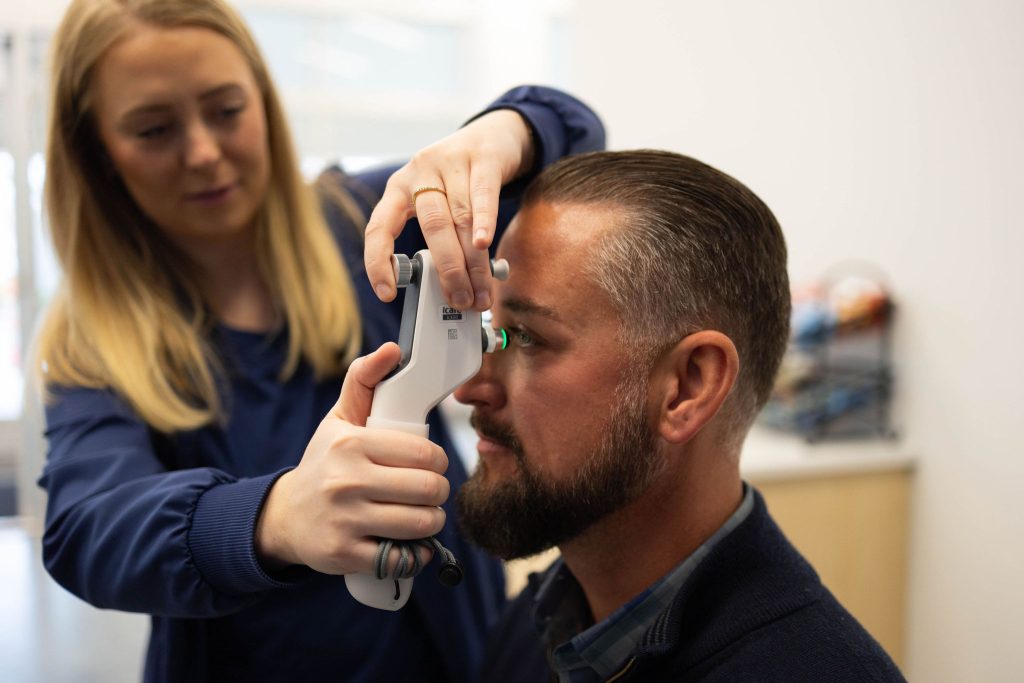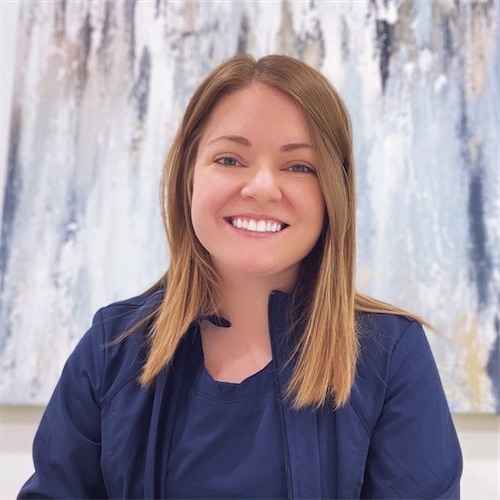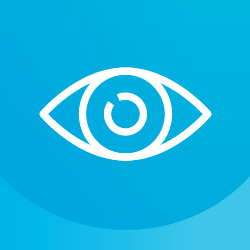At Modern Vision Solutions in Omaha, NE, our EyeAnalysis eye exams are the foundation of protecting your vision and keeping your eyes healthy. We use the latest diagnostic technology to get a complete picture of your eye health, catching vision problems and eye diseases early—often before you even notice symptoms. Whether you’re coming in for your annual checkup or have concerns about changes in your vision, our comprehensive exams give you the full story about your eye health and what we recommend for next steps.
Get Your Special Offer
Why Choose MVS?
- Broadest Selection of Contact Brands & Types
- Our No Pressure Sales Promise
- Fast & convenient scheduling
- State-of-the-art EyeAnalysis exam
- Unparalleled patient experience
- All-inclusive vision solutions
Limited Time Offer
New patients receive $50 off their glasses or contacts.
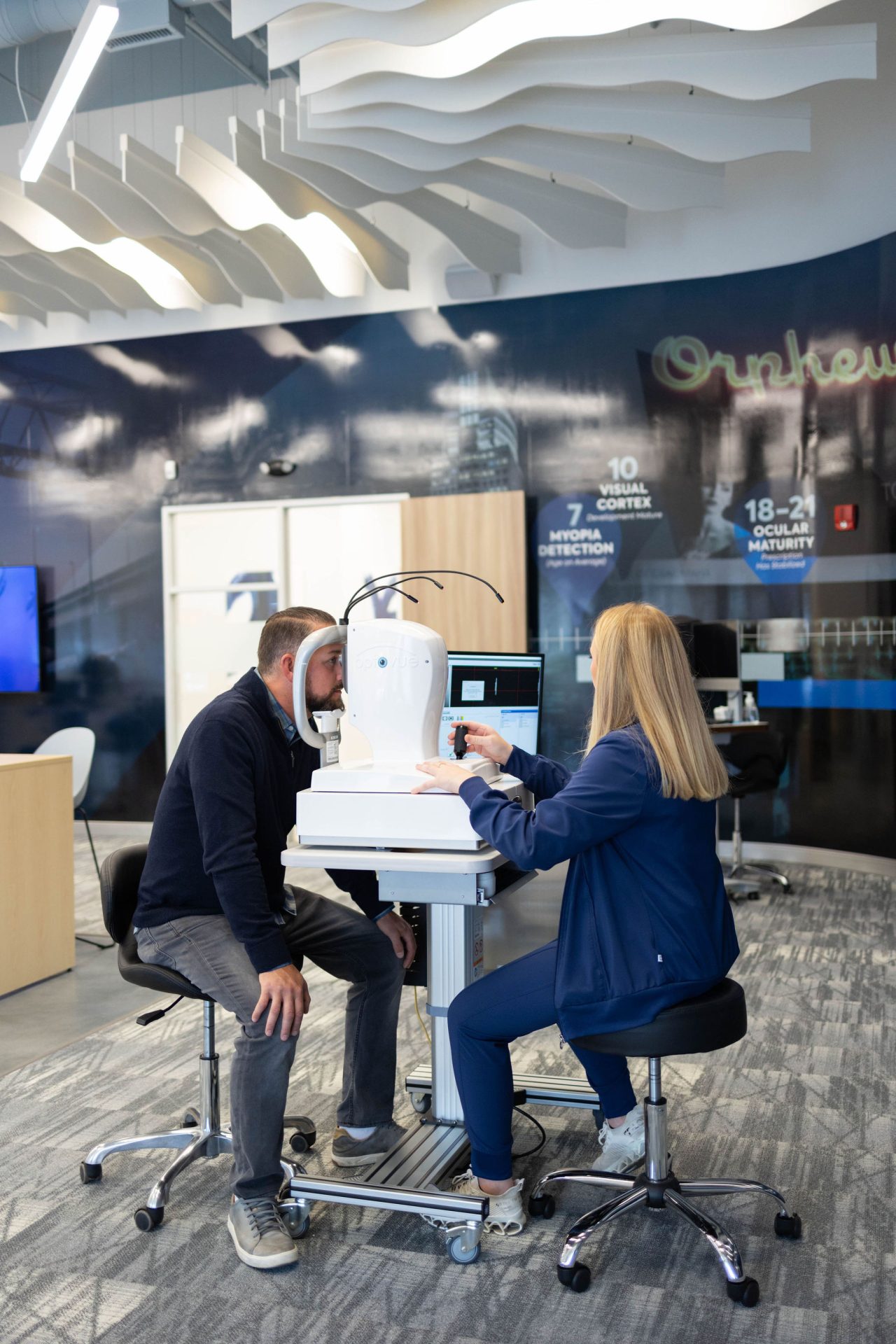
Why Choose Modern Vision Solutions for Your Eye Exams in Omaha?
Modern Vision Solutions is the trusted choice for eye exams in Omaha because: we combine advanced technology with a personalized approach to care. Our VisionTrack EyeAnalysis exam offers a deeper look at your eye health than a standard eye examination, helping us catch issues early and tailor treatment to your needs. Our experienced eye doctors use the latest tools in eye care to ensure accurate results and clear answers, whether you’re updating your prescription or managing a complex vision concern. From your first visit, you’ll see how committed we are to making your experience smooth, comfortable, and centered on what matters most to you and your family.
- No-puff, no-dilation comfort
- Exclusive VisionTrack™ diagnostics
- Easy online scheduling
- All your vision needs, one stop
- Care that’s built around you
- No jargon, just clarity
- Locally rooted, Omaha proud
Modern Vision Solutions Advanced Diagnostic Technology
At Modern Vision Solutions, we rely on cutting-edge diagnostic equipment to provide precise eye examinations and catch potential issues before they become serious problems. Our state-of-the-art technology, including optomap retinal imaging, captures comprehensive pictures of your eye’s interior, revealing early warning signs of disease that standard examination techniques might miss. This accuracy allows us to quickly identify concerns and create targeted treatment plans that protect your sight before damage occurs. When we pair these innovative instruments with our team’s clinical knowledge, every Omaha patient gets exceptional eye care that sets the gold standard.
The Importance of Eye Exams in Omaha
Identifying vision issues and eye diseases before symptoms develop is why thorough eye examinations are essential for maintaining healthy eyesight throughout your lifetime. At Modern Vision Solutions, we emphasize these complete evaluations because they provide a full assessment of your eye health and monitor changes as they occur over time. Basic vision checks barely touch the surface, but our extensive examinations analyze your prescription requirements alongside the internal components of your eyes, identifying problems like glaucoma and macular degeneration when treatment is most effective. This preventive strategy protects your eyesight for the future while maintaining sharp vision for everyday tasks. These thorough assessments also allow us to evaluate whether you’re a good candidate for transformative procedures such as LASIK, Refractive Lens Exchange, and other advanced vision correction options!
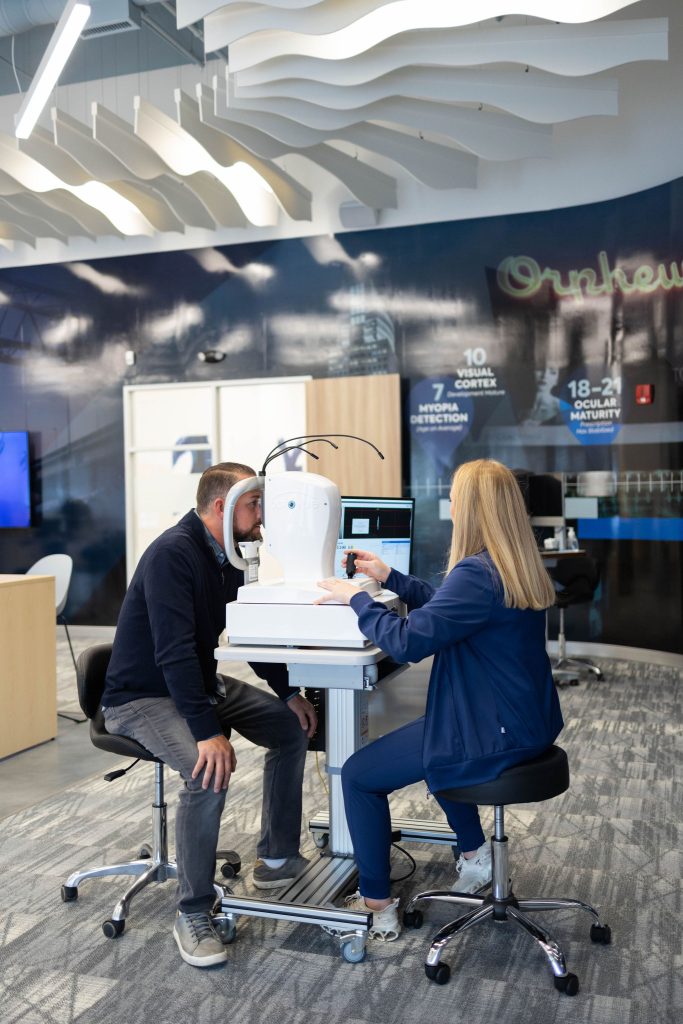
Experience a new approach to eye care.
No more dreaded air puffs
No lengthy wait times
No unnecessary dilation
Patient-centered revolutionary care
Specialty Eye Exams
Modern Vision Solutions offers a range of specialized eye exams to meet the needs of every patient and stage of life, making us a trusted source for complete eye care in Omaha.
Contact Lens Examinations
Contact lens exams involve measuring the eye’s surface for a proper fit and checking eye health to ensure contacts can be worn safely. Our Omaha team at Modern Vision Solutions matches each patient with the right lenses based on their vision needs and lifestyle.
Pediatric Eye Exams
Pediatric eye exams focus on detecting vision or developmental issues early in children. These specialized exams test visual acuity, visual perception, eye coordination, and more. Modern Vision Solutions offers complete pediatric care in Omaha to support healthy visual development from a young age.
Diabetic Eye Exams
People with diabetes require regular eye exams to check for complications like diabetic retinopathy. These exams monitor for signs of retinal damage caused by high blood sugar and are a vital part of diabetic ophthalmology care. At Modern Vision Solutions, we provide diabetic eye care in Omaha to help protect and preserve long-term vision.
Emergency Eye Exams
Sudden vision changes or eye pain require immediate care. Emergency eye exams focus on quick diagnosis and treatment of urgent issues while also evaluating overall eye health. Omaha patients can count on Modern Vision Solutions for prompt, expert attention when it matters most.
What to Expect During Your Eye Exam
